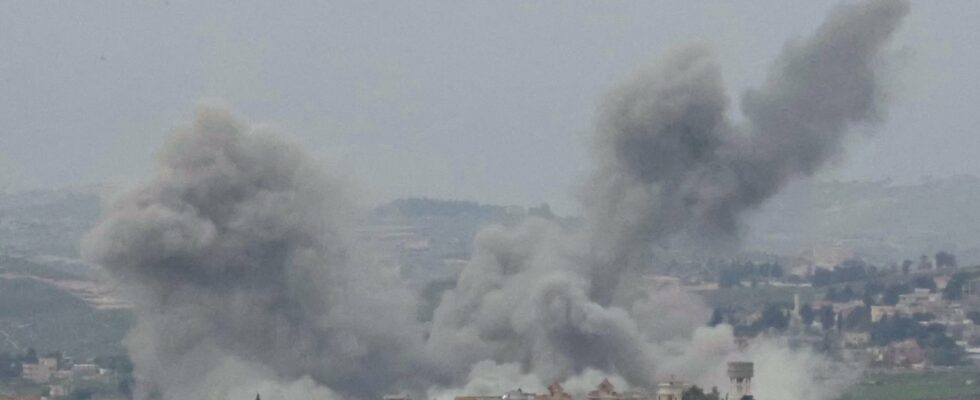An Israeli strike targeted this Friday, March 28, a residential area of the southern suburbs of Beirut on Friday, March 28, for the first time since the entry into force of a cease-fire on November 27 between Hezbollah and Israel, the Lebanese National Information Agency announced. The shot on a densely populated and housing district intervened shortly after a call from the Israeli army to evacuate a sector, which followed the unlit of Roquettes on Israel earlier in the morning.
The Israeli army warning caused panic in the region, bastion of Hezbollah. Flated parents rushed to bring their children back to schools that have closed, found AFP correspondents. A huge traffic jam has formed at the gates of the southern suburbs, many inhabitants of this hard -bombed district during the war between Israel and Hezbollah seeking to flee, according to AFP correspondents.
Earlier this Friday, Israel bombed southern Lebanon and threatened to “act with force” to Beirut, response to fire from non -claimed rockets from Lebanon to its territory. The Israeli army had announced that two “projectiles” had been drawn from Lebanon, one of which was intercepted and the second fell on Lebanese soil. The Israeli Minister of Defense, Israel Katz, had immediately threatened: “If there is no calm in Kiryat Shmona and in the localities of Galileo”, in northern Israel, “there will be no calm in Beirut,” he said.
A “ceasefire violation”, according to Emmanuel Macron
French President Emmanuel Macron judged that Israeli strikes in Lebanon were “unacceptable” and “in violation of the ceasefire”. “The strikes are unilateral actions that betray a given promise and that play Hezbollah,” said Emmanuel Macron who received in Paris his Lebanese counterpart Joseph Aoun, who condemned “any detestable attempt to bring Lebanon back into a whirlwind of violence”.
This is the second time since the start of the ceasefire that ended two months of open war between the Israeli army and the Lebanese movement supported by Iran that rockets are drawn from Lebanon to Israel, the previous one dating back to March 22. Hezbollah, as he had already done on March 22, denied being at the origin of these shots and claimed to respect the ceasefire. Prime Minister Nawaf Salam asked the Lebanese army to “identify the perpetrators of the irresponsible act of rocket fire and which threatens the security and stability of Lebanon”.
After the interception of rockets on March 22, the Israeli army had retaliated by air strikes in southern Lebanon and claimed to have targeted “dozens of rocket launchers and a command center from which hezbollah’s terrorists operated”. These bombings had killed eight, according to Lebanese authorities.
“A return to a wider conflict in Lebanon would be devastating for civilians on both sides” of the border “and must be avoided at all costs,” said the UN on Friday. “It is absolutely necessary that all parties show restraint,” said the United Nations representative for Lebanon, Jeanine Hennis-Plasschaert, in a press release.
Reciprocal accusations of violation of the truce
Hezbollah had opened a front against Israel in solidarity with Hamas at the start of the war in the Gaza Strip on October 7, 2023, pulling rockets from Israeli territory. These hostilities, which degenerated at the war opened in September 2024, killed more than 4,000 people in Lebanon, destroyed entire sectors in the bastions of Hezbollah and forced more than a million people to flee.
On the Israeli side, the balance sheet amounts to 78 dead, including 48 soldiers in addition to the 56 soldiers who fell during an offensive on the ground launched in Lebanon at the end of September, according to official data. Some 60,000 inhabitants in northern Israel have been moved, half of which has not yet returned home, according to the authorities.
Despite the ceasefire entered into force on November 27, then the incomplete withdrawal of Israeli soldiers in southern Lebanon on February 15, Israel continues to carry out strikes in Lebanese territory and the two parties regularly accuse the truce. Israel also resumed its strikes on March 18 on the Gaza Strip after two months of truce, to force Hamas to release the last hostages in its hands. The Islamist movement resumed arugula fire to Israel a few days later.
